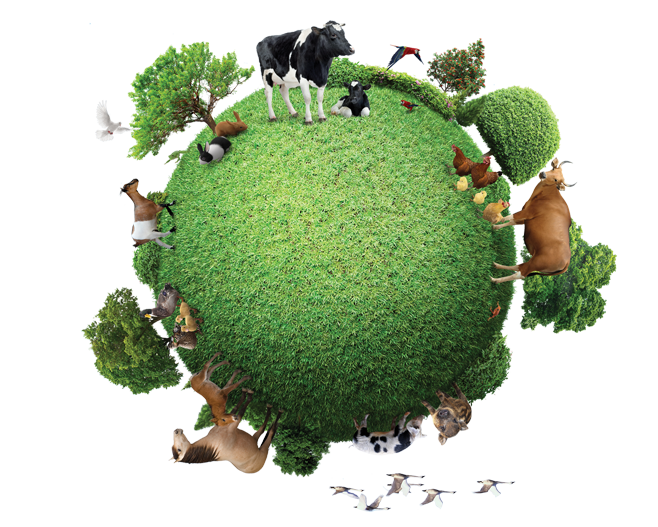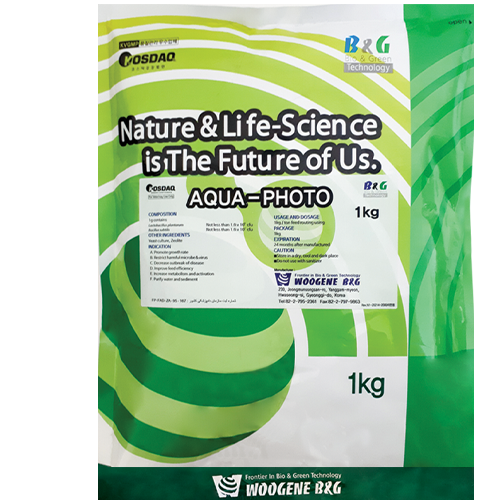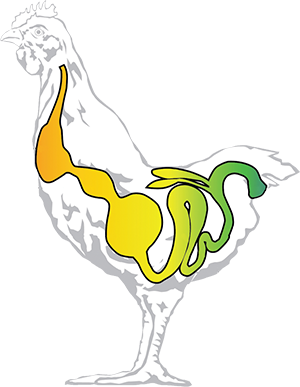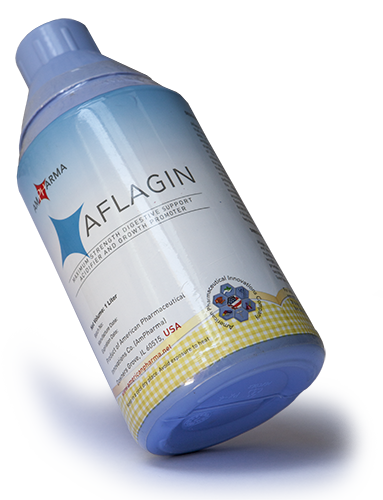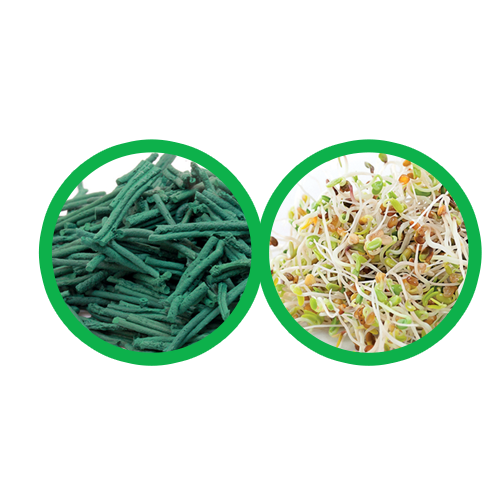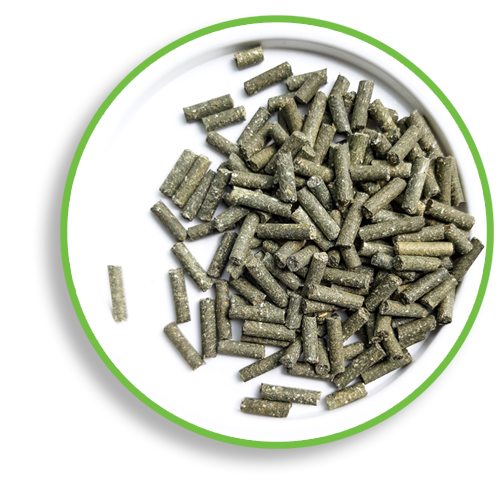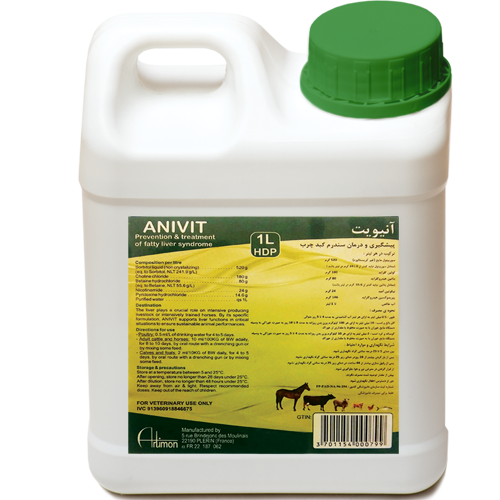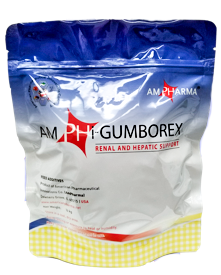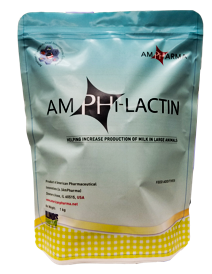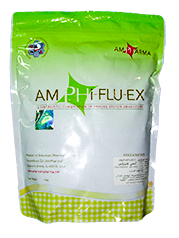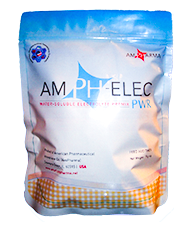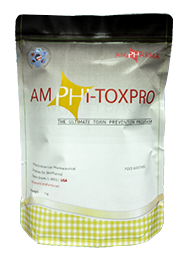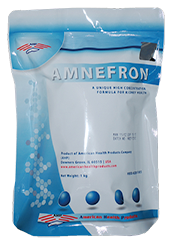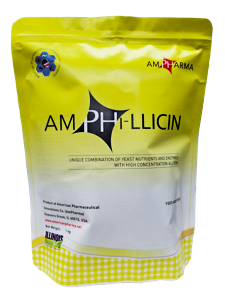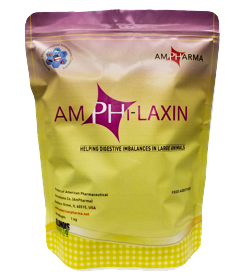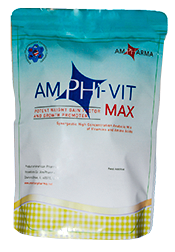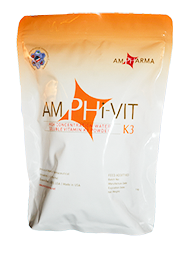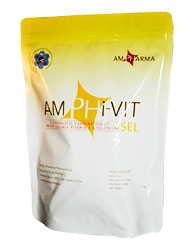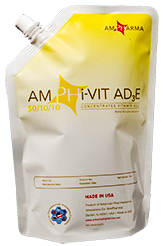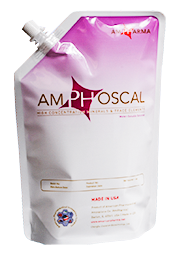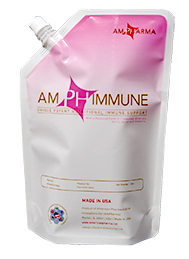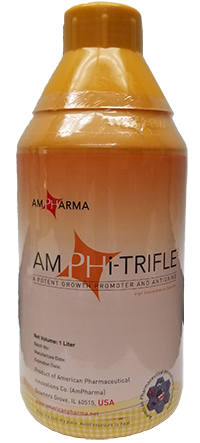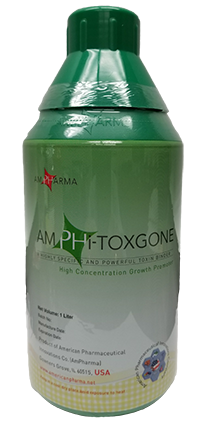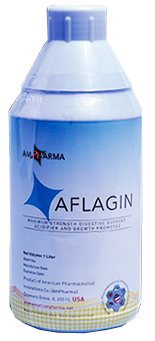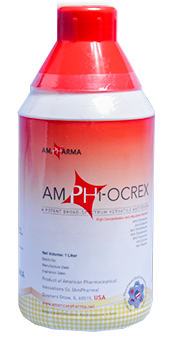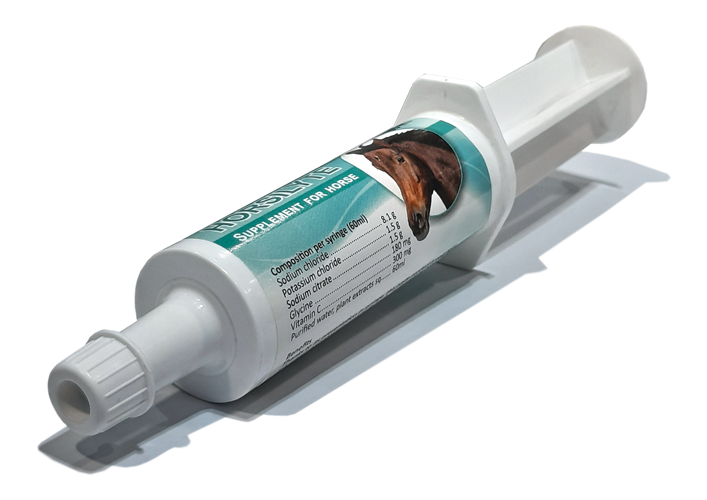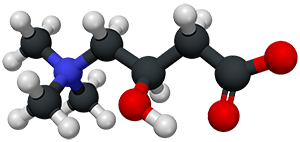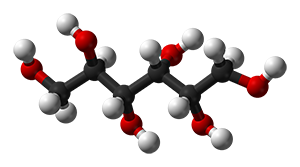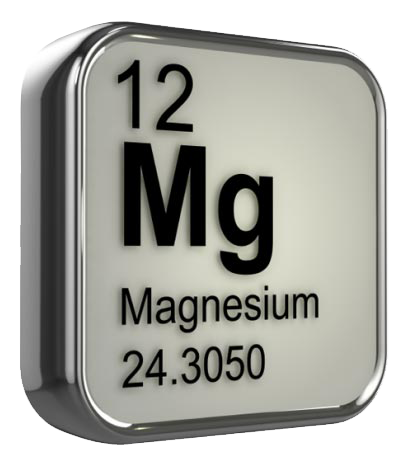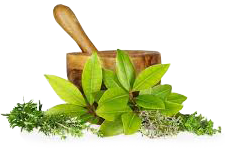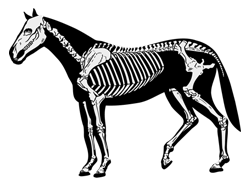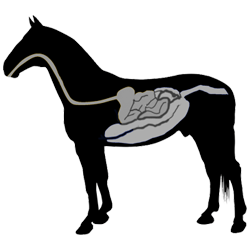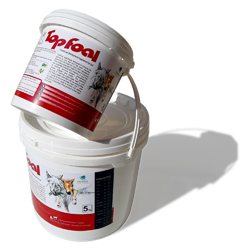Carnitol Aquatic solvable supplement
A special formula for aquatic animals:
Carnitol is a supplemented liquid containing L-carnitine, sorbitol and magnesium, with the extracts of a artichoke and gentianella plant`s.
This special formulation results in the full consumption of fat and its metabolism in fish and shrimp. This compound can also be used as auxiliary treatment for liver lipidosis.
Ingredient in carnitol help refine the liver and kidney from a variety of toxins and anti-nutrients
Carnitine key component
In fish kept in breeding, the amount of L-carnitine in fish food without the addition of L-carnitine to a diet of between 10and 120mg per kg of food varies.
With regard to the investigations, it has been determined that all fish species do not produce L-carnitine physiological activity by normal nutrition.
Studies have also shown that fry and hand –fed fish provide lower levels of L-carnitine than wild-type fish.
Given that in most feeds, the amount of L-carnitine can be reduced by the effects of preservatives, production condition or feed storage conditions.
Experience has shown that improved carnitol supplementation to fish diets will lead to better results.
How does carnitol work!
L-carnitine increases the mitochondrial beta-oxidation of long-chain fatty acids, which results in their passage through the mitochondrial membrane. When the amount of metabolism and the need for energy with growth, egg-laying and environmental stress increase with fat-rich diets, the supplement of L-carnitine improves animal performance and redistributes fat in the body.
Carnitine, effective in boosting glucose metabolism
carnitine play a very important role in energy production.
This compound transports the long-chain fatty acids into mitochondria after which these fatty acids can oxidise during the beta-oxidation process and generate energy.
Fats in the form of long-chain fatty acids in the state basic metabolism or in exacerbated metabolism form are an important part of the energy source for aquatic animals.
Advantages of carnitol:
increase fertility and hatching eggs
-preventing fatty liver syndrome
-improved digestibility of fat and its optimal use
-increase production rate and improve feed conversion ratio
-increased energy metabolism
-Increasing the performance of the safety system
-increased appetite
-coping with environmental stressors such as sudden changes in water temperature
-improving kidney function and eliminating toxins, especially in high-density fish pools.
one liter of carnitol per ton of feed
10 to 20 ml carnitol per 100 kg live weight
carnitol
Solvable supplement for all types of animal and poultry
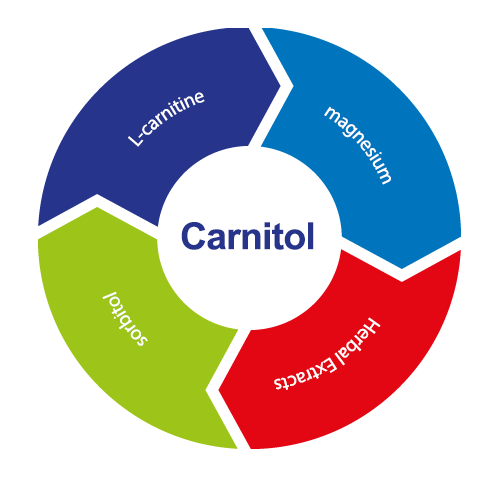
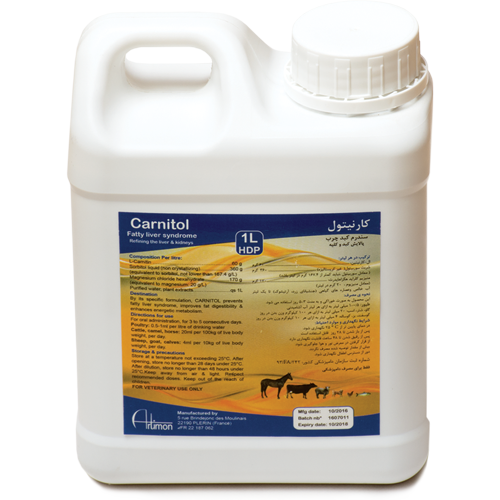
Carnitol is a unique and special formula for poultry
Carnitol is a special combination of selected components for stimulating energy metabolism and optimizing all the functions of the poultry for a variety of breeding purpose.
The main goals of feeding with supplement carnitol solution in poultry
-reduce the likelihood of developing fatty liver syndrome
-improve the efficiency of the poultry metabolism system
-increase digestibility of fat, energy production and reduce the conversion factor
Carnitine
Carnitine is a derivative of amino acids found in almost all cell of the body. carnitine is a generic term for referring to a number of compounds ,such as L-carnitine, acetyl-L-carnitine and propionyl-L-carnitine.
Carnitol can be mixed in poultry drinking water or supplemented with feed, but if mixed with drinking water, it will have the greatest effect as a result of the same use of all poultry populations under cultivation.
Carnitine, effective to boost glucose metabolism
Carnitine plays a major role in energy production. This combination of long-chain fatty acids is transmitted into the mitochondria (the place of fat metabolism in the cell) after which these fatty acids can be oxidized during the beta –oxidation process to generate energy.
Fats in the form of long-chain fatty acids, in the state of basic metabolism (body comfort) or exacerbated metabolism (stress or compensatory growth) form an important part of the source of energy for the poultry. Carnitine strengthens the rotation of energy metabolism pathways.
Carnitine, the component key to poultry metabolism:
-conversion of fat to energy:
Strengthening energy metabolism and converting feed energy for easy use.
-Cardiovascular system:
The energy required for heart muscle is higher than the source of fat and L-carnitine
-Enhance the antioxidant function:
It acts as a strong antioxidant
Maintain integrity of muscle function:
L-carnitine causes more blood flow to the muscle and increases its function
-The buffering property and the potential deletion of toxic acyl groups from the cells
Herbal extracts
Artichoke (cynara scolymus):
-The active ingredients in the artichoke extract are most flavonoids and caffeintics
-These compounds have proven effects in protecting the liver preventing the acculumation of fat, antioxidant effects and anti-inflammatory effects.
Gentiana (gentiana lutea):
-The active substance are bitter taste and in the extracts extracted from this plant are active ingredients of sucroiodoids, junta pixerine and ammunentin.
-Gentiana has proven effects in preventing intestinal problems, or the establishment of a microbal population in the gut , and has benificial effects in accelerating the improvement progression of intestinal , liver and bladder diseases.
The role of metabolic syribitol:
-Sorbitol has a proven role in increasing liver function
-Sorbitol increases the secretion of digestive enzymes and, as a result, result in better digestion of the food, preventing the accumulation of fats through the mechanism of increasing bile acids.
-sorbitol, as an osmotic element, increases the amount of inter tissue fluid and increased toxic waste disposal of body.
Magnesium
-magnesium is the fourth most important cation for concentration in the body , and plays a major role in many metabolic reactions of the body ,including muscle function, nervous system ,and reproduction of protein replacement pseudonuclear cells.
-The balance of magnesium in the body will be regulated by renal reabsorption.
-magnesium allows industrial poultry to balance and reduce the amount of adrenaline during stress.
-magnesium also plays a key role in maintaining tonus muscle and regulating strength, intensity of muscle contraction and its range of motion.
Effects of carnitol on the performance of broiler chickens
Materials and methods:
-360 day-old chicks were grouped into two groups, control group (without carnitol) and care group (carnitol feeding)
-Feed: A standard starter (day 0 to 10) ,starter(day 10 to 21) ,snack with higher energy than standard diets(day 21 to 35 with a power of 3280kcal/kg) and a final meal to form pellet(day 35 to 42)
-Care group: Add carnitol product at 1 liter per 1000 liters of drinking water reservoir on days 28, 29 and 30 only in the care group.
20ml per 100kg body weight per day
4ml per 10kg body weight per day
Half to one milliliter per liter of drinking water for 3 to 5 days.




